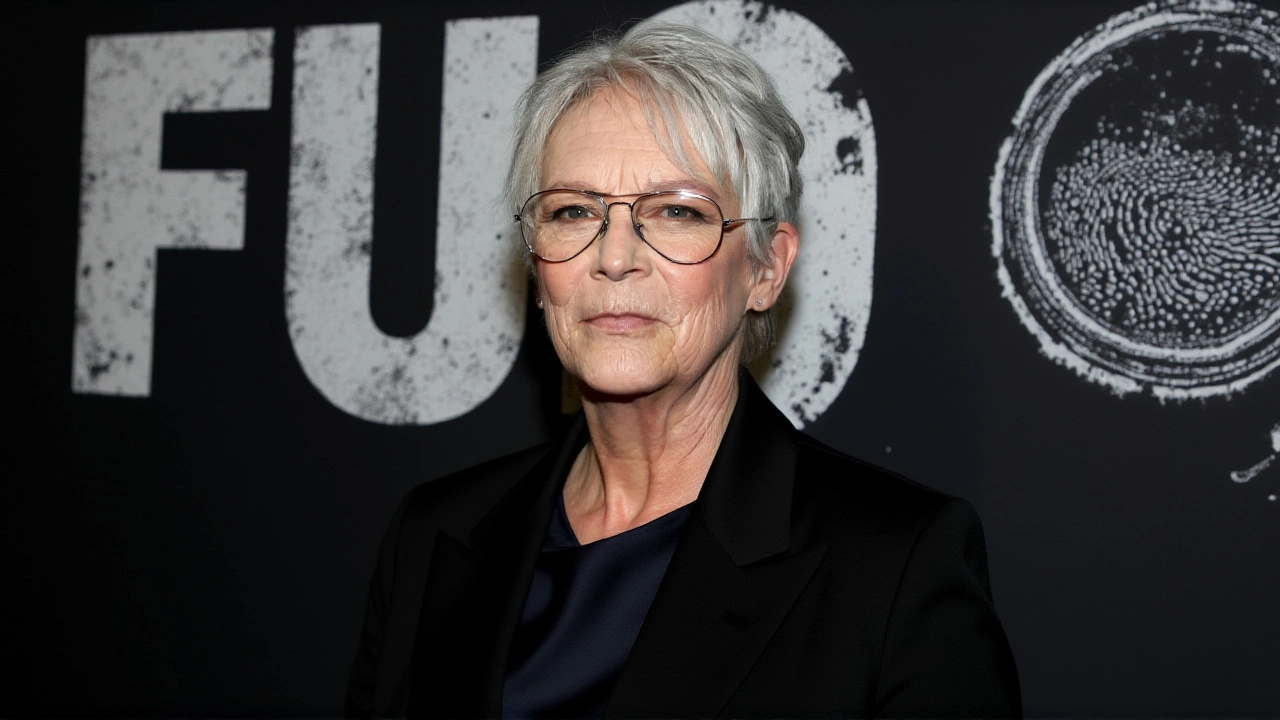When Jamie Lee Curtis wept on Marc Maron’s podcast describing Charlie Kirk as "a man of faith" after he was shot on a college campus, she didn’t expect to be labeled a traitor by half the country. The incident occurred on September 10, 2024, Utah Valley University in Orem, Utah, where Charlie Kirk, 30, founder of Turning Point USA, was struck in the leg by a lone gunman during a conservative student event. He survived, was treated at Utah Valley Hospital, and discharged the same day — a fact many news outlets, including WCIV, WBFF, and ABC 33/40, got wrong, reporting he had died. That error fueled a firestorm. And then came Curtis’s emotional response.
"I Wasn’t Endorsing Him"
In a candid November 1, 2024 interview with Variety, Curtis, 66, walked back what she called a "mistranslation" — a phrase she used deliberately, noting the pun on "mis-translation" and "mis-translation" of intent. "An excerpt of it mistranslated what I was saying as I wished him well — like I was talking about him in a very positive way, which I wasn’t," she said. "I was simply talking about his faith in God."
Her original comments, made during a raw, unfiltered episode of WTF with Marc Maron, had been clipped and circulated widely. "I disagreed with him on almost every point I ever heard him say," she told Maron, tears streaming, "but I believe he was a man of faith. I hope in that moment when he was shot that he felt connected to his faith."
That’s it. No praise for his politics. No defense of his rhetoric. Just a recognition of humanity — even in someone whose views she found abhorrent. But in today’s America, that’s not enough. Conservative media painted her as a liberal apologist. Progressive circles accused her of giving oxygen to a "hate figure." The backlash, she said, was "threatening."
The Binary Trap
Curtis, who identifies as Jewish, used the moment to speak about the collapse of nuance in public discourse. "In the binary world today, you cannot hold two ideas at the same time," she explained. "I cannot be Jewish and totally believe in Israel's right to exist and at the same time reject the destruction of Gaza. You can't say that, because you get vilified for having a mind that says, 'I can hold both those thoughts.'"
She wasn’t just defending her words about Kirk. She was defending her right to feel conflicted — to grieve a violent act without endorsing the victim’s ideology. It’s a stance increasingly punished in both camps. "I can’t not be who I am in the moment I am," she declared. That line, simple and devastating, captured the emotional toll of living in a culture where empathy is weaponized.
Who Is Turning Point USA?
Founded in 2012 by Charlie Kirk, Turning Point USA has become one of the most visible conservative student organizations in the U.S., with chapters at over 1,000 campuses. Headquartered in Great Falls, Virginia, it’s known for aggressive campus outreach, viral social media content, and a confrontational style that often draws protests — and, sometimes, violence.
The September 10 shooting was not the first time a TPUSA event has been targeted. In 2021, a student was arrested after threatening a speaker at the University of Arizona. In 2023, a protest at Texas A&M turned violent when counter-protesters threw bricks. The Orem shooting, however, was the first time a founder was physically attacked during an official event. Security footage showed the assailant, later identified as a 22-year-old local man with no known political affiliations, firing one round before being tackled by students.

Why This Matters Beyond the Headlines
This isn’t just about Jamie Lee Curtis or Charlie Kirk. It’s about what happens when empathy becomes a political litmus test. When a Hollywood icon expresses compassion for a political enemy — even if that compassion is rooted in spiritual belief, not ideological agreement — and is met with rage, we’re seeing a deeper fracture.
Consider this: In 2015, after the Charleston church shooting, then-Senator John McCain praised the victims’ families for their forgiveness of the shooter. He was praised. In 2024, Jamie Lee Curtis says the same thing about a conservative activist — and she’s called a traitor. The double standard is glaring.
And then there’s the media’s role. Dozens of outlets reported Kirk was dead. That false narrative shaped public reaction before the facts were even clear. When misinformation fuels outrage, empathy becomes the first casualty.
What’s Next?
Curtis has no plans to apologize. She says she’s received hundreds of supportive messages from people who feel silenced by the same binary culture. Meanwhile, Turning Point USA has doubled down on campus events, framing the shooting as part of a "war on free speech." Kirk, visibly recovered, returned to speaking engagements by late October.
As for Curtis? She’s working on a new film. But she says she won’t stay quiet. "If I have to be the person who says, ‘Wait — what if we’re all wrong about this?’ then so be it."
Frequently Asked Questions
Did Jamie Lee Curtis support Charlie Kirk’s political views?
No. Curtis explicitly stated she disagreed with Kirk on "almost every point" and clarified her comments were solely about his personal faith, not his ideology. She emphasized that her empathy was not an endorsement, but a recognition of shared humanity in the aftermath of violence.
Was Charlie Kirk killed in the shooting?
No. Multiple news outlets incorrectly reported Kirk died, but he was shot in the leg and treated at Utah Valley Hospital on September 10, 2024, before being released the same day. The misinformation spread rapidly, amplifying the backlash against Curtis before facts were confirmed.
Why did Curtis mention Israel and Gaza in her interview?
She used the Israel-Gaza conflict as an example of how public discourse now punishes people for holding complex, contradictory beliefs — like supporting Israel’s right to exist while opposing civilian casualties. She argued that this binary thinking silences honest moral reflection.
What’s the significance of Turning Point USA in this story?
Turning Point USA, founded by Charlie Kirk in 2012, is a major force in conservative campus activism. Its provocative style often sparks protests, making its events flashpoints for ideological conflict. The Orem shooting highlighted how political polarization can escalate into physical violence — even against non-elected figures.
Is this the first time a conservative figure has been targeted during a campus event?
No. Similar incidents occurred in 2021 at the University of Arizona and in 2023 at Texas A&M, where TPUSA speakers faced violent protests. But this was the first time a founder was physically shot during an official event, raising new concerns about safety and escalation in campus political discourse.
How did the media contribute to the backlash against Curtis?
Outlets like WCIV, WBFF, and ABC 33/40 falsely reported Kirk had died, which intensified public anger. When Curtis later expressed empathy, her words were taken out of context and amplified by partisan media, turning a personal moment of reflection into a national controversy fueled by misinformation.
